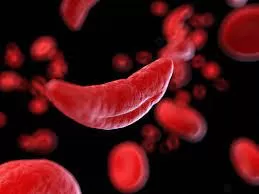Hyderabad, April 5: A significant public-private partnership aims to tackle sickle cell anemia (SCA) in Jharkhand, a state with a high prevalence of the genetic disorder, particularly among its tribal communities. The Centre for Cellular and Molecular Biology (CCMB), the Tata Steel Foundation (TSF), and the National Health Mission (NHM), Jharkhand, announced on Friday their collaboration on a large-scale SCA screening program.
Speaking about the initiative, CCMB Director Dr. Vinay K Nandicoori emphasized that the project aligns with the institute’s mission to promote early diagnosis and effective healthcare intervention. The program will commence in the Kolhan region, encompassing the districts of East Singhbhum, West Singhbhum, and Seraikela-Kharsawan. It will leverage the extensive community networks of both the NHM and TSF to maximize reach.
As part of the collaboration, CCMB will establish a central testing hub equipped for large-scale screening. Furthermore, CCMB will provide training to frontline healthcare workers, including Accredited Social Health Activists (ASHA) and Auxiliary Nurse Midwives (ANM), empowering them for effective community outreach and sample collection. A crucial aspect of the program involves integrating the screening results directly into Jharkhand’s healthcare framework to ensure better disease management and patient follow-up.
A standout feature of this initiative is the deployment of an indigenously developed Dried Blood Spot (DBS) PCR-based molecular test. This technology, developed under the Council of Scientific & Industrial Research’s (CSIR) Sickle Cell Anemia Mission initiated in 2018, offers several advantages: it is cost-effective, highly accurate, and importantly, eliminates the need for invasive venous blood collection, making screening less daunting for individuals. This testing method has already been successfully validated in pilot programs across several other states, including Chhattisgarh, Maharashtra, Madhya Pradesh, and Rajasthan.
Jharkhand is one of 17 states identified under the National Sickle Cell Anemia Elimination Mission (NSCAEM) launched by the Central Government in July 2023. While previous screening efforts have occurred in the state, they have often been inconsistent, leading to an incomplete picture of the disease’s true prevalence. Sickle Cell Anemia is an inherited disorder caused by a mutation in the beta-globin gene, resulting in abnormally shaped red blood cells. This leads to chronic anemia, pain crises, organ damage, and other severe health complications. As it follows an autosomal recessive inheritance pattern, early detection through widespread screening is vital for genetic counseling and preventing transmission to future generations.
The national mission aims to eliminate SCA as a public health problem by 2047, involving the universal screening of approximately 7 crore individuals aged 0-40 years residing in high-prevalence tribal areas. This collaborative venture in Jharkhand represents a significant stride towards achieving this national objective and improving the health outcomes for vulnerable communities affected by sickle cell anemia.
Disclaimer: This news article is based on information provided regarding the launch of a collaborative sickle cell anemia screening program in Jharkhand involving CCMB, Tata Steel Foundation, and NHM Jharkhand, as announced on April 4th.












